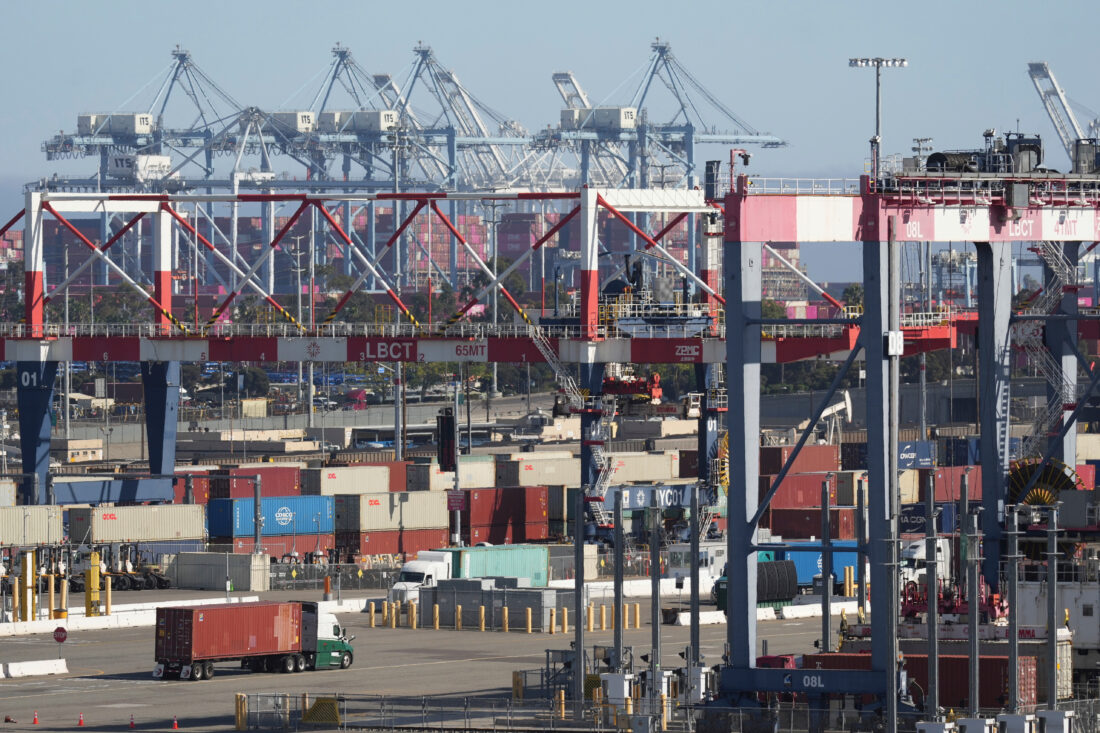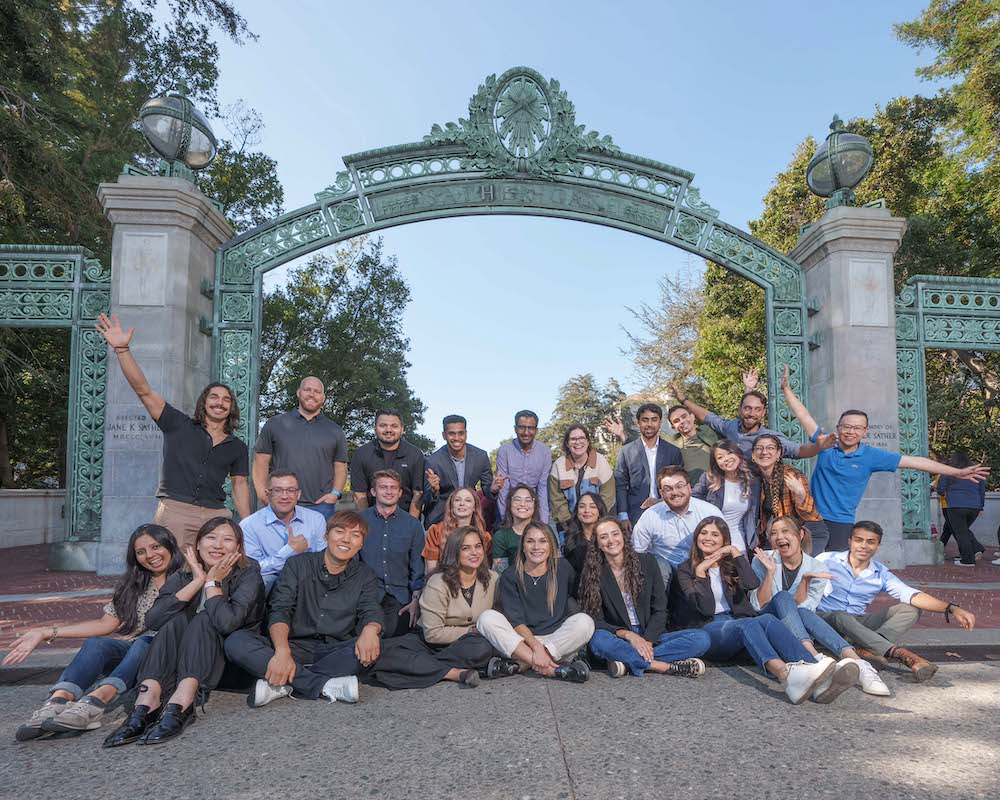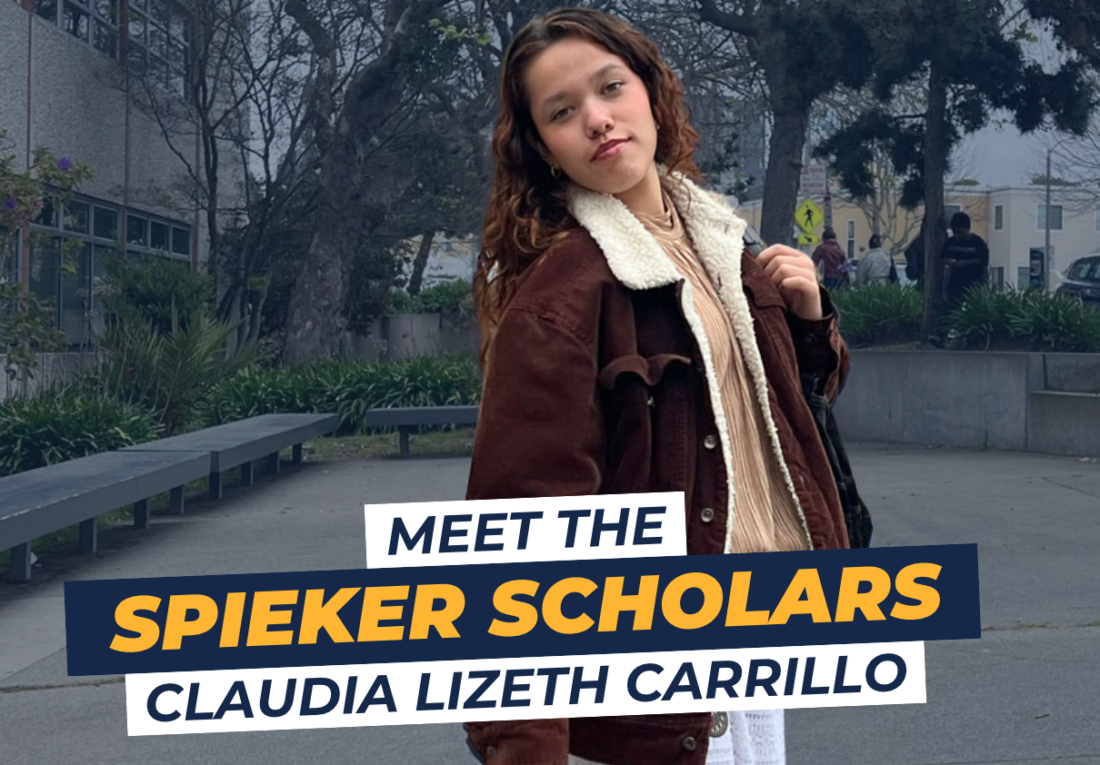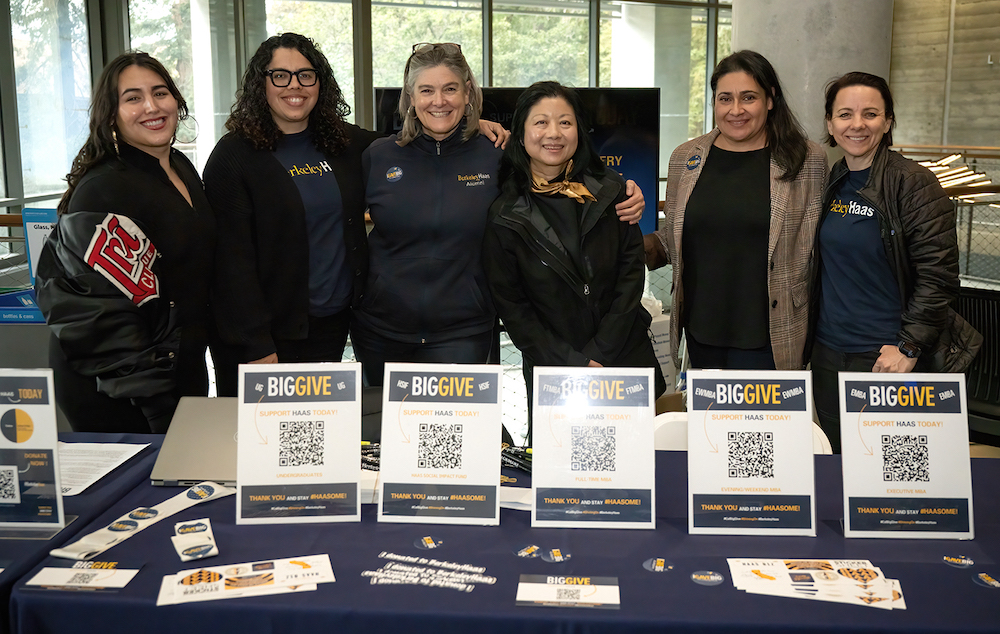Trade policies unraveled: Q&A with economist Matilde Bombardini
The 246 students in the Full-time Berkeley MBA Class of 2017 were immersed in Haas culture this week with interactive games, leadership and diversity sessions, volunteer work, and alumni entrepreneur speakers.

Students welcomed three surprise visitors during orientation week, including Virgin America CEO David Cush, and Revolution Foods Co-founders Kristin Groos Richmond and Kirsten Saenz Tobey, both MBA 06.
Revolution Foods Co-Founders Tobey and Richmond
“Orientation has been overwhelming, refreshing, inspirational — and fun,” said Valerie Li, MBA 17, who is pursuing a career in investment management. Li said she chose Haas for its Bay Area location and for the program’s size. “This is a small community, which means it’s really close-knit, and I hope to form close relationships over the next two years.”
Second-year students and program staff put together a packed week for the Class of 2017, a diverse group that includes 41 percent women and 40 percent international students. The average student is 28 years old with five year’s work experience and an average GMAT score of 715.
The class includes a student awarded the Archbishop Desmond Tutu Leadership Fellowship as one of Africa’s 20 most promising young leaders; a student who led Special Forces team through Nepal and trained with Nepalese Army Rangers to improve country’s stability and internal security; and a class member who led a team that developed a patented portable ventilation device that improves acute circulation in trauma patients.
“We Co-Own This School”
Each day of Week Zero focused on one of the Haas Defining Principles: Question the Status Quo, Confidence Without Attitude, Students Always, and Beyond Yourself. After an introduction to their two-year journey from the Program Office, Haas Career Management Group and the MBA Association on Monday, Haas Dean Rich Lyons greeted the students, urging them to embrace everything the school has to offer.
“From here on out, we co-own this school,” he told the students. “It’s this sense of co-owning and leaning in to one another that makes us stronger.”

Virgin America CEO David Cush Surprises Students
Students spent the morning working on their first case study on Virgin America, only to be surprised when Cush walked into Andersen Auditorium.
Cush discussed Virgin’s decision to enter the airline market in 2007, a move made by Virgin Group founder Richard Branson, who believed the airlines were poorly run and charged too much for flights. Despite intense competition and financial struggles early on, Virgin America has fought to add new destination cities and taken on the big airlines.
“What’s most gratifying right now is that we’ve moved from the bottom quartile to the top half of the pack and we’re going to keep pushing that forward,” said Cush, who answered many student questions about Virgin’s culture, hiring practices, innovation strategy, and competitive challenges.
Revolution Foods’ Tobey and Richmond shared how they started their company by building a network of supporters at Haas, including Lecturer William Rosenzweig—who remains an investor in their company—Adjunct Prof. Kellie McElhaney, and angel investor Dick Beers, who invested $50,000 after Revolution Foods placed first in the Berkeley-Haas Global Social
“Every single piece of the equation we built here at Haas,” says Richmond, who serves as CEO of the Oakland-based company.
Early on, investors told them that their cost model was crazy and that they’d never be able to build a business around feeding healthy meals to low-income kids.
But having confidence without attitude and listening to the communities they serve helped them to stay true to their vision, Richmond said. Revolution Foods now serves more than a million healthy meals a week to public school students across the US and has raised more the $100 million.
Creating a Strong Foundation
In keeping with Haas’ hands-on and experiential approach, every Week Zero lesson was followed by action to bring the school’s values to life. The activities, such as Game of Teams and the Cohort Olympics, focused on collaboration and building a sense of community that is such a critical part of the Berkeley-Haas experience.
Students also spent a morning fixing up a children’s playground and gardens at the Alameda Point Collective, a housing organization that serves homeless and at-risk families. “Week Zero created such a strong foundation for my success during my first year,” said Isabelle Schuhmann, MBA 16 and Week Zero co-chair. “”I feel honored to have played a role in creating a strong introduction for the incoming class and helping to set them up for success.”
Students working at the Alameda Point Collective
Posted in:



